detail profile nanni moretti
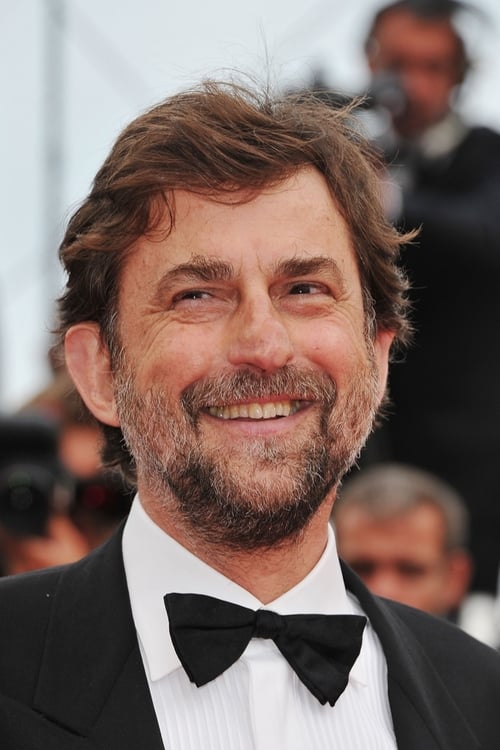
Nanni Moretti
난니 모레티
atau dikenal sebagai
Riwayat Hidup
Giovanni "Nanni" Moretti (Italian pronunciation: [ˈnanni moˈretti]; born 19 August 1953; Brunico) is an Italian film director, producer, screenwriter, and actor.
The Palme d'Or winner in 2001, in 2012 he was the President of the Jury at the Cannes Film Festival.
His films have won accolades including a Palme d'Or at the 2001 Cannes Film Festival for "The Son's Room", a Silver Bear at the 1986 Berlin Film Festival for "The Mass is Ended" and a Silver Lion at the 1981 Venice Film Festival for "Sweet Dreams", in addition to the David di Donatello Award for Best Film on three occasions (for "Caro diario" in 1994, "The Son's Room" in 2001 and "Il caimano" in 2006).
Moretti was born in Bruneck, Italy to Roman parents who were both teachers.
His father was the late epigraphist Luigi Moretti, a Greek teacher at Sapienza University of Rome.
His brother is literary scholar Franco Moretti.
While growing up Moretti discovered his two passions, the cinema and water polo.
Having finished his studies he pursued a career as a producer, and in 1973 directed his first two short films: Pâté de bourgeois and The Defeat (La sconfitta).
In 1976, Nanni Moretti's first feature film Io sono un autarchico (I Am Self-Sufficient) was released.
In 1978, he wrote, directed and starred in the movie Ecce Bombo, which tells the story of a student having problems with his entourage.
It was screened at the Cannes Festival.
Sogni d'oro won the Silver Lion at the 38th Venice International Film Festival.
La messa è finita won the Silver Bear – Special Jury Prize at the 36th Berlin International Film Festival.
He may be best known for his films Caro diario (Dear Diary, 1993; followed in 1998 by a sequel, Aprile) and La stanza del figlio (The Son's Room, 2001), the latter of which won the Palme d'Or at the 2001 Cannes Film Festival.
Moretti has used certain actors several times in his films, generally playing minor roles.
His father Luigi appears in 6 films, Dario Cantarelli and Mauro Fabretti in 5, Antonio Petrocelli in 4.
More notable Italian actors he has employed frequently in his films include Silvio Orlando, who appears in 5 films (including the role of protagonist in Il caimano) and Laura Morante, who was featured in Sogni d'oro, Bianca and The Son's Room.
[citation needed].
Having played waterpolo in the B division of the Italian championship, his experience later inspired his film Palombella Rossa ("palombella," which literally means "little pigeon," refers to a type of lob shot).
His other work has not been widely seen outside Europe, but within his country Moretti is known as a maker of wryly humorous and eccentric films, usually starring himself.
His most recent role was in the film Mia Madre (My Mother, 2015) Moretti is also an outspoken political leftist.
In 2002, he organized street protests against the government of Silvio Berlusconi.
Il caimano (2006) is in part about Berlusconi's controversies: in one of the three portraits of the Italian prime minister Moretti himself plays Berlusconi.
Aprile also deals with Italy's political situation and Moretti's views on it.
His 2011 film We Have a Pope screened In Competition at the 2011 Cannes Film Festival.
Info Pribadi
Peran Yang Di Mainkan Nanni Moretti
 Jasmine is 40 and has everything she...
Jasmine is 40 and has everything she...Vittoria 2024
Jasmine is 40 and has everything she ever wanted: a devoted husband, three loving sons, and a thriving hair salon just south of Naples. But after her father’s death, she experiences a recurring dream in which a young girl runs into her arms, offering Jasmine a new sense of fulfilment and completeness she can’t ignore. She decides to follow her dream of a daughter and dives headfirst into the challenging world of international adoption – risking her marriage, her sons’ well-being, and her own moral compass along the way. The entire family is in crisis, until they finally realize that the only way out is together.
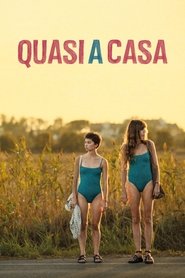 Caterina is in her 20s her...
Caterina is in her 20s her...Quasi a casa 2024
Caterina is in her 20s, her dream is to become a musician but she’s paralyzed by fear. One summer she meets her idol, the French singer Mia. It is the beginning of a complex and magnetic relationship that will accompany Caterina over the years and finally allow her to find home. Almost.
 Everyone in Marcos life seems constantly...
Everyone in Marcos life seems constantly...The Hummingbird 2022
Everyone in Marco's life seems constantly restless, from his brilliant but unhappily married parents to his own wife Marina, or even Luisa, the real love of his life, a girl he met during a fateful summer in the '70s and always stayed in touch with. Tragedy and fate seem to haunt him, yet he somehow manages never to get ensnared in the chaos—like his namesake, “the hummingbird”, he focuses all his energy at standing still.
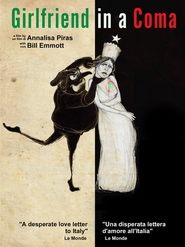 Girlfriend in a Coma is a...
Girlfriend in a Coma is a...Girlfriend in a Coma 2012
Girlfriend in a Coma is a documentary that exposes the dire situation of Italian politics and the process of economic and social decline the country has suffered during the last two decades, treating the decline as a warning of what might happen elsewhere in the West. The decline has occurred amid a collapse of moral values and the victory of “Mala Italia” over “Buona Italia”. It has been lauded as being ground-breaking in its creative combination of animation, interviews and hard facts, and has caused fierce controversy in Italy.
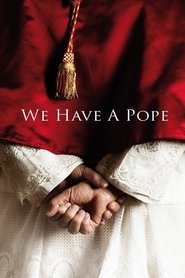 The newly elected Pope suffers a...
The newly elected Pope suffers a...We Have a Pope 2011
The newly elected Pope suffers a panic attack just as he is about to greet the faithful who have gathered to see him. His advisors, unable to convince him he is the right man for the job, call on a renowned therapist who also happens to be an atheist. But the Pope's fear of his newfound responsibility is one he must face alone. Winner Best Film at the Italian Golden Globes.
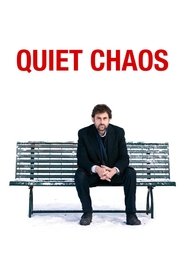 Pietro is a successful businessman with...
Pietro is a successful businessman with...Quiet Chaos 2008
Pietro is a successful businessman with a wife and a daughter. One day he helps his brother save two women from drowning at the beach. When he returns home he finds that his wife has died. Now Pietro has to take care of his daughter, Claudia. When he drives her to school soon after, he decides to wait for her all day in front of the school, and soon that's what he does every day.
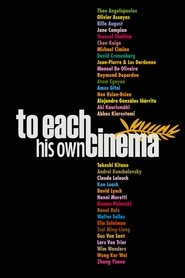 Commissioned to mark the 60th anniversary...
Commissioned to mark the 60th anniversary...To Each His Own Cinema 2007
Commissioned to mark the 60th anniversary of the Cannes Film Festival, "To Each His Own Cinema" brought together 33 of the world's pre-eminent filmmakers to produce short pieces exploring the multifarious facets of cinema and their perspective on the state of their chosen artform in the early 21st century.
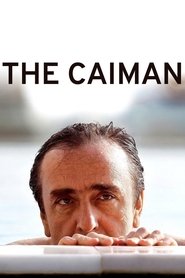 Bruno Bonomo was a famous producer...
Bruno Bonomo was a famous producer...The Caiman 2006
Bruno Bonomo was a famous producer of B-movies in the ‘70s. After a long hiatus, Bonomo offers a screenplay to RAI centered on the figure of Italy’s prime minister and media tycoon Silvio Berlusconi, a subject so controversial that even the public television broadcaster refuses to produce it
 Nanni Moretti recalls in his diary...
Nanni Moretti recalls in his diary...Dear Diary 1993
Nanni Moretti recalls in his diary three slice of life stories characterized by a sharply ironic look: in the first one he wanders through a deserted Rome, in the second he visits a reclusive friend on an island, and in the last he has to grapple with an unknown illness.
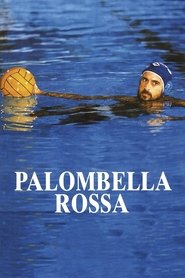 Michele is a Communist MP who...
Michele is a Communist MP who...Palombella rossa 1989
Michele is a Communist MP who loses his memory in a car crash—although nobody seems to notice. Over the course of a water polo match ahead of election day, he begins to remember his past life, revealing the picture of a man whose personal and political identity crisis mirrors the one of Italian communism.
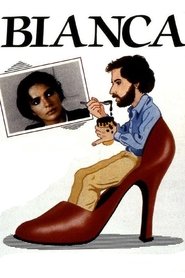 Eccentric and full of manias Michele...
Eccentric and full of manias Michele...Bianca 1984
Eccentric and full of manias, Michele is a young high school professor who defines himself as “not used to happiness”. He realizes his life is meaningless if he doesn’t have a woman by his side but, after a series of rather disastrous experiences, he feels more alone than ever. Then, out of the blue, a new French teacher called Bianca arrives at school. Amongst uncertainties and contradictions, the two start dating. In the meantime, a series of homicides take place and a police officer begins to suspect that Michele is involved. Bianca will save him providing an alibi at the right moment, but then, everything goes wrong again.
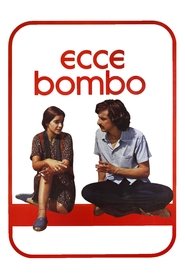 Michele Goffredo Mirko and Vito are...
Michele Goffredo Mirko and Vito are...Ecce Bombo 1978
Michele, Goffredo, Mirko and Vito are four friends who have participated in the battles of the student in Sixties. Now in the Seventies, the four friends don't know what to do, though young and with so many possibilities to find a job in life. Intellectuals marginalized and misunderstood, the four friends find themselves when they can in a restaurant to discuss their outlandish theories. A girl named Olga disrupts their life, but Michele is her favorite, although he does not know what to do with the girl.
 An old film director unhappy with...
An old film director unhappy with...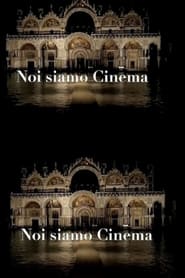 An Italian documentary about Italian cinema
An Italian documentary about Italian cinema Follows the lives of three families...
Follows the lives of three families...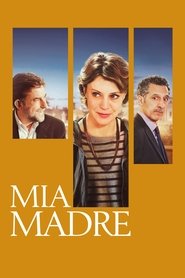 Margherita a director in the middle...
Margherita a director in the middle...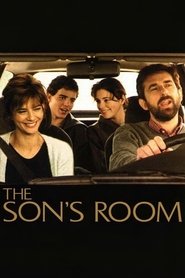 A psychoanalyst and his family go...
A psychoanalyst and his family go...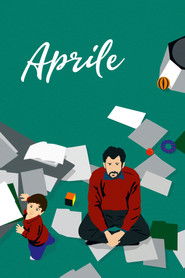 Nanni Moretti takes another look at...
Nanni Moretti takes another look at...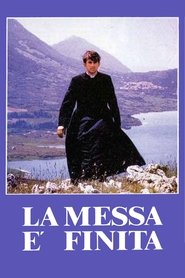 The young priest Father Giulio returns...
The young priest Father Giulio returns...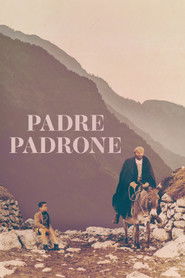 The true story of the life...
The true story of the life...